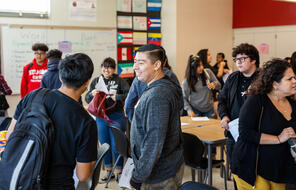Breadcrumb
Richard Blanco: Searching for Home
At a Glance
Language
English — USSubject
- English & Language Arts
- Culture & Identity
Richard Blanco: Searching for Home
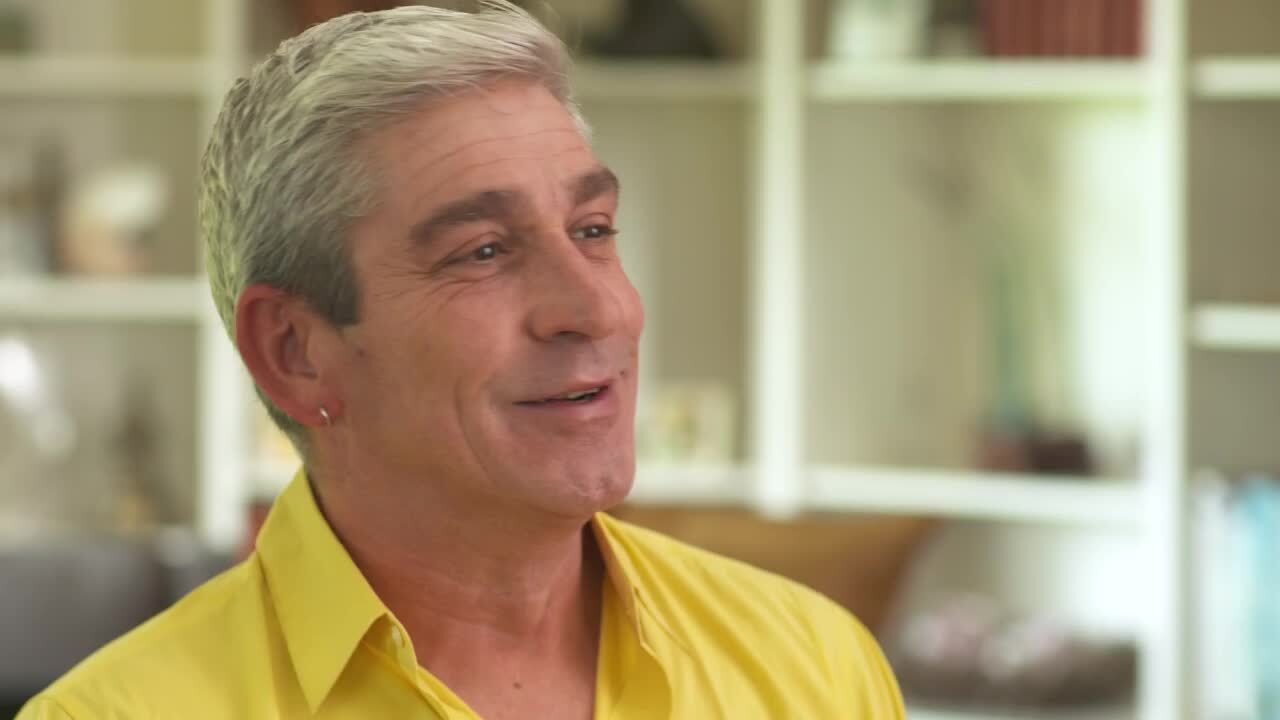
[MUSIC PLAYING]
How do we define home? How do we think of home? How do we know where we're home? I always say that my quest for home, my longing for home is epigenetic. My mother leaves Cuba at seven months pregnant, leaves her entire family behind, and I can only imagine-- I felt that.
I was born in Madrid. 45 days after I'm born and we emigrate again to New York City and eventually to Miami. So by the time I was four years old, I had lived in four cities and also belonged to three countries-- to Spain, Cuba, and the United States, and yet to none.
Early on in life imprinted me this sense of what is "place," what is "belonging," where am I from is in my body, so to speak. Eventually it would surface up in my writing and that's become the theme of my work.
I always like to say that home is a very-- well, it is a very big word. It's like asking what is love. And the sense of what home means to us is constantly changing because we change, but also our surroundings change, our life circumstances change.
I think some people think that you're-- naturally, you embrace your given culture. And I think that's sometimes misunderstood. I did not want to be Cuban because that was what my parents were and that was what my grandparents were, and what teenager wants to be like their parents? So in a way, I grew up-- I wouldn't say rejecting my culture but sort of shunning it a little bit because I wanted to be American. I wanted to be Richard, not Ricardo.
It was actually when I started writing that the big question comes to mind as like, where am I from? What are all these stories? What is all this stuff my parents have been talking about Cuba? Where is this place that I am supposedly from?
And then it was a process of reclaiming a sense of home, a cultural home, and really investigating not only the stories of my parents and grandparents and really interviewing them almost, but also researching Cuban history. Why are we here? What is the Spanish-American War? How did we get here? And really falling in love and embracing that culture.
And so that part of my journey was sort of a cultural coming of age story, where I finally found-- I felt like, oh, we are Cuban. This is real. Then I became Mr. Cuba. And I was like, I am so Cuban and I can't wait for Cuba to open up so-- I'm going to go live in Cuba.
But then the reality set in that the Cuba that I longed for, the Cuba that I thought was really still the Cuba of my parents. That I was really also American. And that I couldn't go back in time and just step into a life that I was not lived. I decided, well, let me move from the Republic of Miami and move to Hartford, Connecticut, the heart of New England. And I thought I'd be writing, singing jingle bells and doing arts and crafts with Martha Stewart.
All this quintessential American stuff that-- again, because a lot of what America meant was what I contextualized from TV. And of course, that didn't quite work out. So then I thought, great. Now, what do I do? This really imagined place, Cuba, that I had thought was mine, it wasn't mine. And then this really imagined America wasn't mine either.
So I started traveling a lot and thinking maybe home is a place yet to be discovered, maybe home was Venice, maybe home was Barcelona, maybe home is India, I don't know. I came across this great quote by Pascal. "The sole cause of a man's unhappiness is that he does not know how to stay quietly in his room."
And I thought, what was that room I left? Maybe this is just a wild goose chase. I moved back to Miami thinking, I belong on the border, right? This is what defines my life. But then home was different because I had been gone eight years and the memories I had of Miami or what I thought was home, I thought I was just going to be able to come in and plug and play and just pick up my life where it left.
That didn't quite work out. So the place had changed. But I think I also changed, right? What I needed from Miami eight years later wasn't the same things that I needed from the city then. So I did what any normal human being would do. Moved from Miami to Maine, the other end of the United States.
And in Maine, I found another kind of relationship to home, and that is nature. There's such prevalence and such a powerful sense of nature. My house in Maine is basically in the middle of a forest. And so thinking of nature also as a kind of home and as a universal home and relationship to it is different in some ways, because I find that nature comes on its own terms. And I let go of the question of home for a while because frankly, I was tired.
And then the White House calls and asked me to write a poem about America for Barack Obama's second inauguration. And I thought, oh, Lord. Here we go again. And all those questions about home started surfacing up again. The hardest part of writing that poem really wasn't the actual writing of it, it was the emotional search that you have to do to be able to write a poem.
And the big question in my mind that I had to finally face was, do I love this country? I mean, is this my country? And more importantly, does this country love me back? Am I part of this narrative is, is this little working class gay Cuban kid part of the story? And even at the age of 44, I wasn't convinced of that yet.
And the poem, in a way, is an answer to that question in the affirmative saying, no. I'm part of this narrative. All of us from all walks of life are by definition what makes a democracy out of our motto, out of the many, one. And so I became Joe America. It was like I was America's poet. And finally I felt like I have arrived, right? And understanding that all my complex background was exactly what America is about or what it means to be an American.
And so I've been thinking of home or myself or the context of home and thinking of myself more like a global citizen where really we're so connected in so many ways. And there's so many issues that really involve all of humanity. And so caring not only what just home means to me but what home means to us. My fourth book, which is How to Love a Country, started exploring that question of home but on a larger scale, in a collective scale.
And I realized that a lot of people had that same question that I have. It is the question that Whitman has been asking. What is America? Do I belong to? Who is America? That's kind of where I landed, and now for my next book, I'm in a little different space and I'm feeling like home, I never lost or gained a home.
That home always exists in you. And the new book is called Homeland of My Body. And finding that all those memories of places that I've cherished, that I've felt at home, I don't have to access them physically, but they all live in me and they all make my sense of home. And so now, I feel like home has multiple dimensions and multiple places and memories. And they all exist simultaneously.
A sense of home and place is a constantly evolving part of our lives. And thank goodness, because I think it makes for a beautiful journey. There was the poet Basho that said life is a journey, and the journey itself is home.
[MUSIC PLAYING]
Richard Blanco: Searching for Home
You might also be interested in…
What is Power?
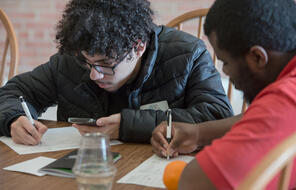
Introducing Agency
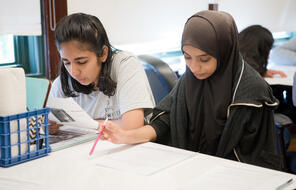
Agency, Choice, and Action

The Power of Belonging

Finding One's Voice
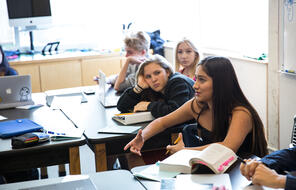
Teaching Mockingbird Media and Readings

Reflecting on the Danger of Silence

Summative Assessment: Agency and Action in the World Today
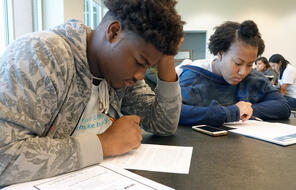
Power, Agency, and Voice

Activities for the First Days of School

Back to School: Building Community for Connection and Learning
